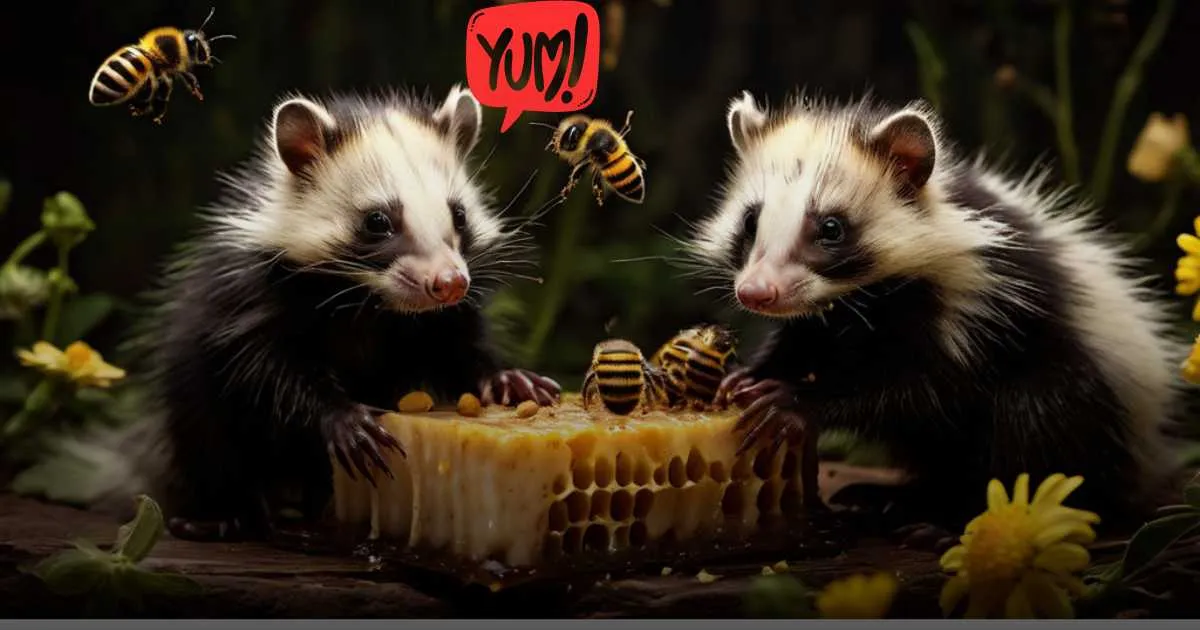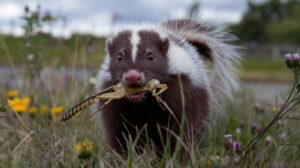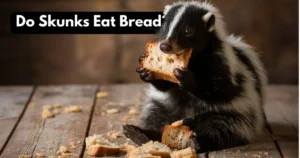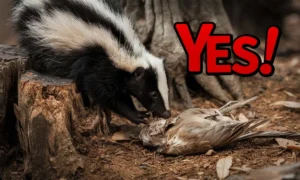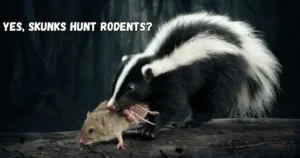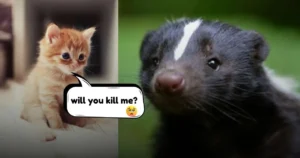Do Skunks Eat Bees?
Skunks are known for their bold black-and-white fur and potent defense mechanism, but their dietary habits might surprise you. Yes, skunks do eat bees! These omnivorous creatures are opportunistic feeders that will raid beehives to eat both bees and their protein-rich larvae. While this behavior can be problematic for beekeepers, it highlights the skunk’s role in the ecosystem as both a predator and pest controller. Let’s dive into why and how skunks eat bees and what this means for nature and humans alike.
Skunks’ Diet: An Overview
Skunks are highly adaptable omnivores, consuming a mix of plants and animals depending on availability. Their diverse diet includes:
- Insects: Beetles, crickets, grasshoppers, and yes, bees.
- Small Mammals: Mice, voles, and shrews.
- Fruits and Nuts: Berries, apples, and acorns.
- Eggs and Reptiles: Bird eggs, frogs, and lizards.
- Carrion: Dead animals left by other predators.
While bees are not a staple, they become a targeted food source, especially when other prey is scarce or when skunks encounter beehives.
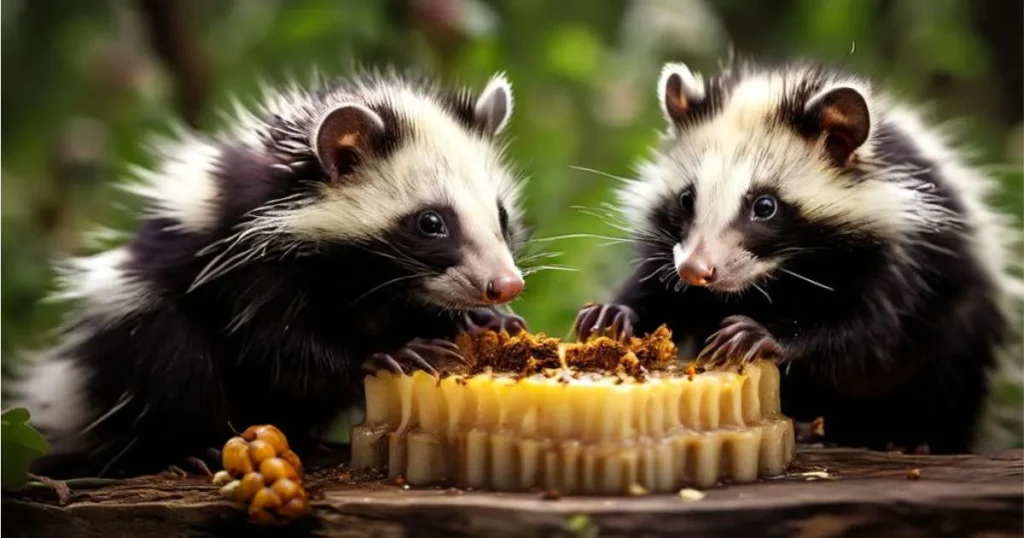
Why Do Skunks Eat Bees?
Protein-Rich Larvae
Bee larvae found inside hives are nutrient-dense, making them an attractive meal for skunks. These larvae are easy to access once a skunk breaches the hive and offer high protein content essential for skunks’ survival.
Seasonal Availability
Skunks target bees and their hives more frequently during warmer months when bees are active. This coincides with the skunks’ need to build up energy for the colder seasons.
Easy Prey
Although bees can sting, skunks have thick fur that shields them from most stings. They are able to scratch at the hive entrance, luring out bees to catch and eat them one by one.
How Skunks Raid Beehives
Nighttime Foraging
Skunks are nocturnal hunters, which gives them an advantage over bees that are less active at night. This reduces the risk of encountering swarming bees.
Hive Scratching
Skunks often scratch at the entrance of beehives to provoke bees to come out. Once the bees emerge, skunks swat them out of the air and eat them.
Thick Fur Defense
A skunk’s thick fur acts as natural armor, protecting it from the majority of bee stings. However, sensitive areas like the nose or eyes may still be at risk.
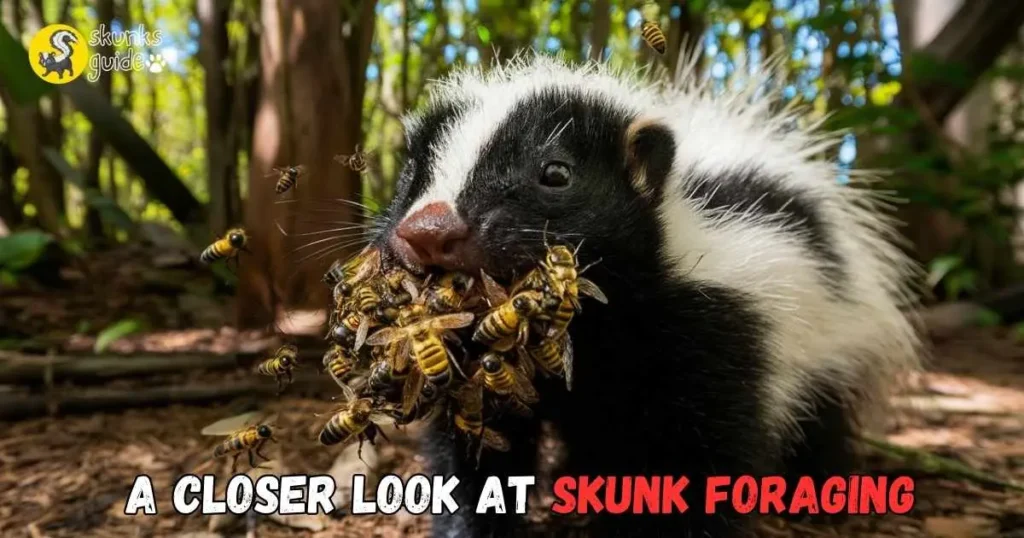
Impacts on Beekeeping
Beekeepers often face challenges from skunks raiding their hives. Frequent attacks can weaken bee colonies, reducing honey production and pollination efficiency.
Signs of Skunk Activity Near Hives
- Scratches around hive entrances.
- Bee carcasses scattered nearby.
- Reduction in hive activity or declining bee populations.
Preventing Skunk Raids
Beekeepers can use several methods to protect their hives:
Repellents: Natural or commercial repellents can discourage skunks.
Hive Stands: Elevating hives off the ground makes them less accessible to skunks.
Barriers: Use skunk-proof fencing around apiaries.
Motion-Activated Lights: Skunks avoid brightly lit areas.
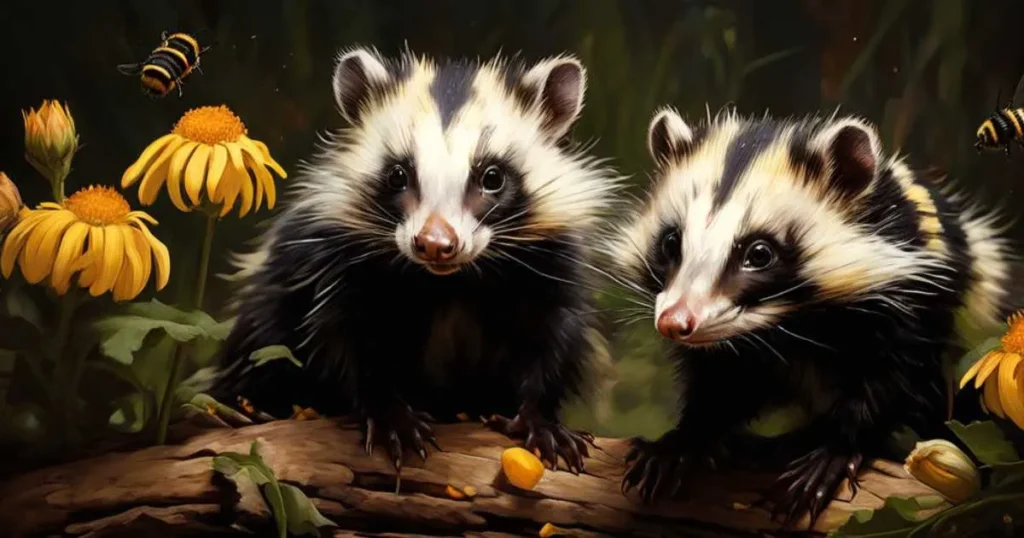
Skunks and Bees: An Ecological Perspective
Balancing Predator-Prey Dynamics
While skunks can be a nuisance to beekeepers, their predation is part of the natural food web. By consuming bees and other insects, skunks help control insect populations, contributing to ecological balance.
Minimal Impact on Bee Populations
Healthy bee colonies can withstand occasional predation by skunks. However, consistent skunk activity can stress hives, especially in areas with declining bee populations.
Frequently Asked Questions
1. Do Skunks Get Stung When Eating Bees?
Yes, but their thick fur minimizes the impact of stings. Sensitive areas like the nose or face are more vulnerable.
2. Do Skunks Only Eat Bees at Night?
Mostly, yes. Skunks are nocturnal and prefer raiding hives at night when bees are less active.
3. Are Skunks Harmful to Bee Populations?
Occasional skunk activity is unlikely to harm healthy hives, but repeated attacks can weaken bee colonies, making them vulnerable to other threats.
Conclusion
Skunks eating bees is a fascinating example of nature’s complexity. While this behavior can be problematic for beekeepers, it showcases the skunk’s adaptability and role as an omnivorous predator. Understanding this dynamic allows us to appreciate skunks’ contributions to the ecosystem while finding ways to minimize conflicts with human activities, such as beekeeping. With thoughtful management, we can coexist with these intriguing creatures and protect our vital pollinators.

